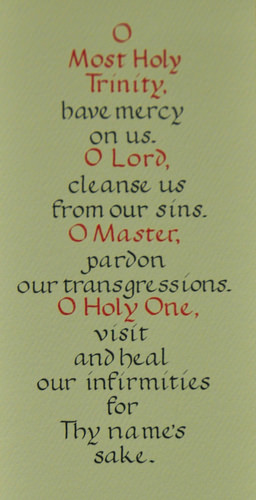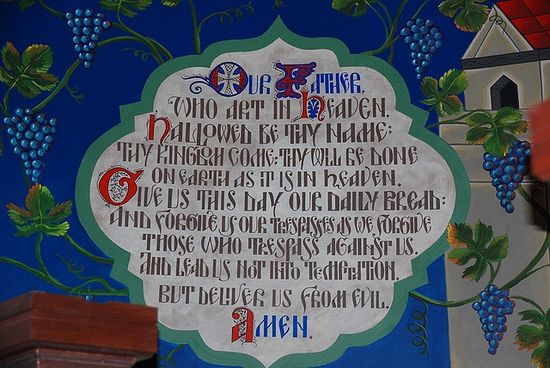 Agony in the Garden, a fragment of a fresco. Visoki Dečani (High Dečani), Serbia, Kosovo. XIV century.
Agony in the Garden, a fragment of a fresco. Visoki Dečani (High Dečani), Serbia, Kosovo. XIV century.
In the Gospel according to St. Matthew (6:5-14), our Lord Jesus Christ teaches us about prayer: both how to pray and what we should seek in prayer. What is most wondrous is that Jesus, even though He is God, prays for us in the Gospels. One really has to think about this mystery. God becomes incarnate to save humanity, then as a human, He prays to His Father for all of us. God becomes human in order to be able to pray for us! His prayer for us, as our High Priest, is in part how Christ saves us. His prayer for us is essential for our salvation, and He can only pray for us as the incarnate Messiah. This is the love of Christ for all humanity.
The Lord Jesus teaches us:
“And when you pray, you shall not be like the hypocrites. For they love to pray standing in the synagogues and on the corners of the streets, that they may be seen by men. Assuredly, I say to you, they have their reward. But you, when you pray, go into your room, and when you have shut your door, pray to your Father who is in the secret place; and your Father who sees in secret will reward you openly. And when you pray, do not use vain repetitions as the heathen do. For they think that they will be heard for their many words. Therefore do not be like them. For your Father knows the things you have need of before you ask Him. In this manner, therefore, pray:
Our Father in heaven,
Hallowed be Your name.
Your kingdom come.
Your will be done
On earth as it is in heaven.
Give us this day our daily bread.
And forgive us our debts,
As we forgive our debtors.
And do not lead us into temptation,
But deliver us from the evil one.
For Yours is the kingdom and the power and the glory
forever. Amen.
For if you forgive men their trespasses, your heavenly Father will also forgive you. But if you do not forgive men their trespasses, neither will your Father forgive your trespasses.”
St. John Cassian (d. 435AD) comments on the Lord’s Prayer that there really is a wrong way to pray, and things not worthy of prayer. Part of our own spiritual life is discerning what is it that we should be offering up to God.
“You see then the brief mode and formula of prayer given us by the judge to whom our pleas must be offered. There is no request for riches, no reminder of honors, no plea for power or bravery, no reference to bodily well-being or to this present life. The Creator of eternity does not wish that something perishable, something cheap, something time-bound, is sought from Him. It would be a terrible wrong to His generosity and lavishness to ignore requests for what eternally endures in favor of petitions for what is transitory and perishable. This kind of spiritual poverty in our prayers would incur the wrath instead of the favor of our judge.” (Conferences, p 116)





